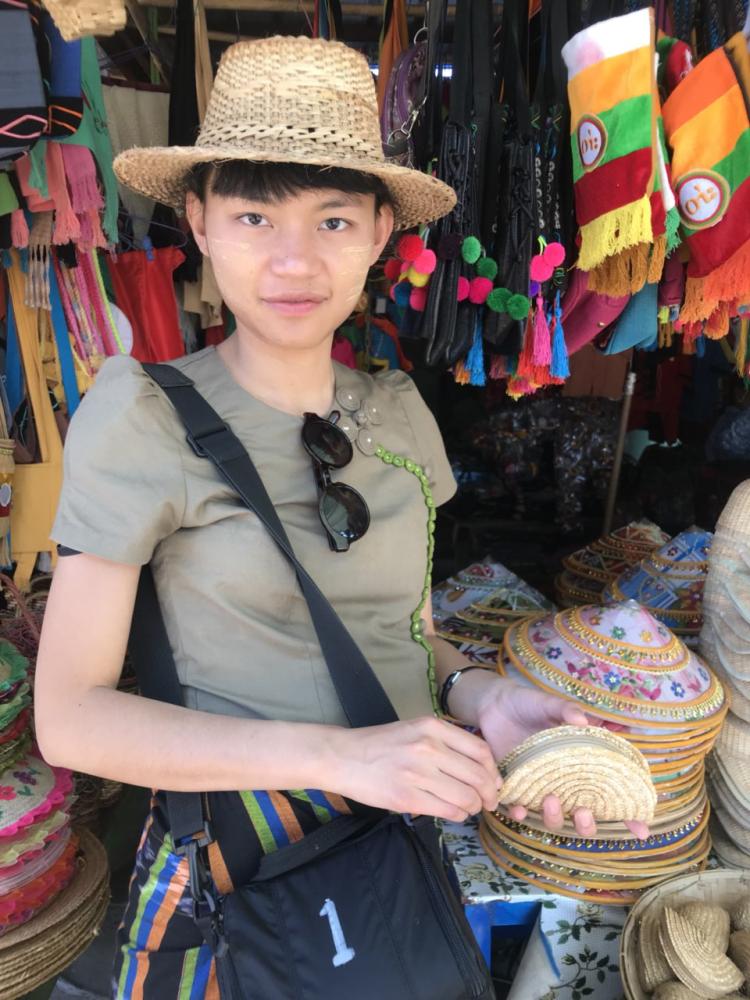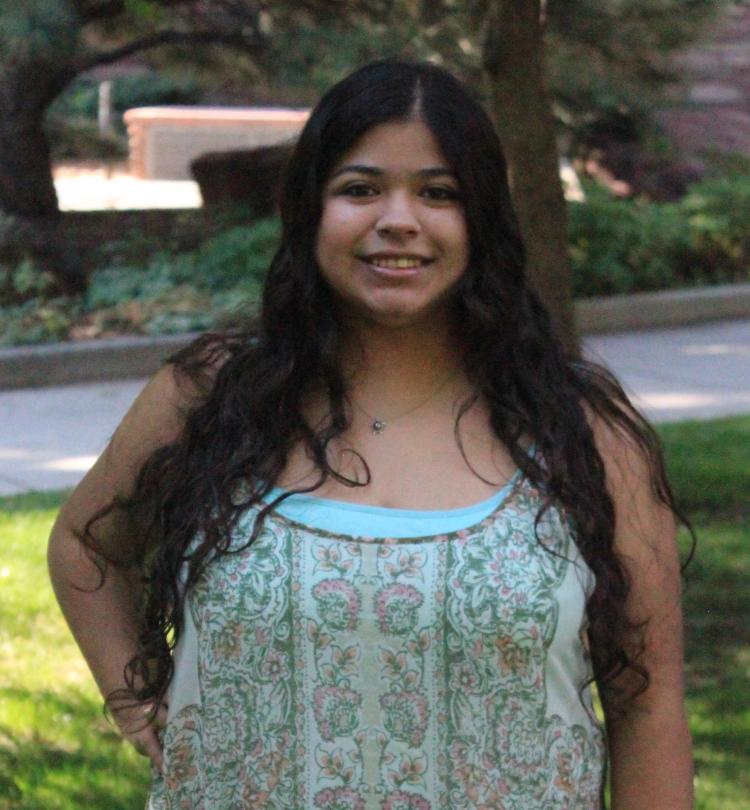Grant-writing boot camp pays off for social sciences
Four workshop participants win big National Science Foundation Graduate Research Fellowship
Writing grants is not easy—particularly for new graduate students—but one workshop in the Institute of Behavioral Science (IBS) has cracked the code, creating not one, nor two or three, but four winners of this year’s prestigious National Science Foundation (NSF) Graduate Research Fellowship program.
This workshop works to get more students from the social sciences at the University of Colorado Boulder to apply for this NSF award—which recognizes and supports outstanding full-time graduate students pursuing a degree in science, technology, engineering and mathematics (STEM) or STEM education—by providing resources and mentorship to help these students over the finish line.
Since the workshop began four years ago, there have been 68 applicants from across the social sciences at CU Boulder. Of those applications, 13 have won and seven have received honorable mentions, which is a higher percentage of winners than the national average for this competitive program.
“I’m really grateful for IBS for their workshop they did for us,” said Chu Paing, a workshop participant and a linguistic anthropologist who is one of this year’s winners.
This fellowship is massive and entirely life-changing in terms of your graduate school trajectory.
The workshop, which is held for a few weeks every fall, is organized and run by former awardees. They use the time to review winning materials, bring in representatives from the NSF to talk about the fellowship, and introduce applicants to mentors who have won in past years to help construct their applications.
And, best of all, it’s free for students interested in applying for the fellowship.
“We’re always trying to broaden our reach. As long as you’re in the social sciences, we can help you,” said Kendra Clark, this year’s workshop organizer and previous winner herself.
The Graduate Research Fellowship is awarded every year to applicants from across the sciences, as long as they are in the first two years of their graduate education. This year there were 32 winners total from CU Boulder, and five from applied math in particular.
“These CU Buffs are future leaders whose innovations will certainly impact humanity, advance knowledge, and help make the world a better place,” James White, interim dean of the College of Arts and Sciences, said in the original announcement.
For these winners, the award can change their entire educational experience.
They not only get their research funded through a year-round stipend, but the fellowship makes it possible for them to specifically focus on their own passions by paying things like their tuition, fees and health insurance for three years.
“This fellowship is massive and entirely life-changing in terms of your graduate school trajectory,” remarked Clark.
And that point was reiterated by those in the social sciences who won this year, including PhD students from anthropology, linguistics and sociology. Below are two of their stories:
Exploring Burmese nationalism through language
Chu Paing knew she wanted to apply for the NSF graduate research fellowship before she even knew she was coming to CU Boulder.
It was during her final year as a linguistics major at City University of New York. Paing already knew that she wanted to get a PhD in linguistics when her advisor at the time mentioned the fellowship. She was right at the beginning of when she could apply, but Paing didn’t quite feel the time was right. After all, she didn’t know where she was going yet, but she knew that she wanted to try.

Chu Paing is one of this year's NSF Fellowship receipients.
Even her journey to get to that point had been one of chance and circumstance.
Paing was born and spent the first 20 years of her life in Yangon, Burma (now Myanmar). It was after high school that she decided on a whim to apply for the United States diversity visa lottery in an internet café. At the time, she didn’t quite even know what she had applied for, just that it had been recommended to her, and so when she heard back a year later that she had been selected, she was thrilled.
After much discussion, Paing decided to move to New York because of its multi-cultural roots and enroll in LaGuardia Community College. As she had worked a little bit with monastic education at orphanages and Buddhist monasteries back in Burma, Paing thought education would be a good career path. However, education is often paired up with the subject you want to teach, so Paing decided to also major in Teaching English to Speakers of Other Languages, or TESOL.
As part of her major, Paing had to do a student teaching internship in New York inner city schools. As a non-native speaker, student teaching would be difficult anywhere, but it proved particularly difficult in that environment, and Paing realized that maybe this wasn’t the path for her.
However, she was still interested in language, particularly language’s relationship with society and how it’s used to discriminate against minority populations and immigrants, and so she switched to linguistics.
That interest in the intersection between language and society became even greater as Chu progressed from her undergraduate to her PhD at CU Boulder, where she started applying her own experiences to her research and seeing what was happening to the Rohingya back in her home country.
“I wonder, if I had stayed in Burma, would I have ever become interested in this topic?” Paing mused. “It was only because of my personal journey of moving, migrating from Burma to the U.S. and becoming a minority myself that then I started thinking about, oh, OK. Let me see if the subjection of minorities in the U.S. is the same as in Burma, or how is that different because this is a very young, post-colonial society in contrast to the United States. The history is just different.”
And so, for her NSF Graduate Research Fellowship, Paing will be exploring this intersection within her home city of Yangon, a multi-cultural city of its own right with multiple ethnic groups, to see how the rhetoric used around the Rohingya population, like calling them “illegal immigrants,” has fueled the current genocide.
Paing plans to begin on-the-ground research next year and is thankful for the chance to do this work.
“I’m really grateful that they decided to give me this grant,” Paing commented. “I feel more validated as an immigrant, in this political climate where immigrants are painted as such-and-such, and I feel recognized as a research scholar, so I’m really grateful.”
Immigrant housing recovery post-disaster
Melissa Villarreal, a sociology PhD student, first heard about the fellowship during her initial trip to CU Boulder.
She was attending an open house before applying, when someone mentioned the workshops and the NSF Graduate Research Fellowship Program. At the time, it meant nothing to Villarreal. “I didn’t understand the difference between an assistantship or a fellowship. I’m a first-generation student. I had no clue.”

Melissa Villarreal is also one of this year's NSF Fellowship receipients.
It wasn’t until after she was in the sociology program and she saw her fellow classmates applying that she realized how big of a deal the program was and began to ask around. Her research plans, however, were still developing, and so she decided to wait another year before applying herself.
And then Harvey hit in August, 2017.
Villarreal, a Houston native, watched her immigrant parents lose their home and struggle to rebuild it. She watched their struggles—and by extension the struggles of the community where she grew up—from far-away as they searched for contractors, who were often over-stretched and exploitative, and as they dealt with the repercussions of the terrible work that they did in the aftermath of the hurricane. It was hard, but a seed was planted.
She then spent the next summer working and interviewing Mexican immigrants in Denver as part of a separate research project, and that’s when it hit her: She was already interested in studying immigrant populations, so why not study the recovery, particularly as it pertains to housing, for the immigrant population from Mexico in Houston after Harvey?
“It just kind of clicked. I’ve done a project interviewing this population, I have a connection to it, I’ve been seeing my parents progress with this the entire first year that I was here,” said Villarreal. “But I don’t think I would’ve gotten there if I didn’t have the summer experience first to really think. I don’t know if I would’ve made the connection between the personal to the work so quickly if I hadn’t done some kind of work already with it.”
Villarreal will spend this summer on the ground in Houston establishing connections and getting to know the community before she starts her interviews. Ultimately, she hopes to use this research to not only get an M.A. in sociology as part of her program, but also use it for her dissertation research down the road.
“I was so anxious to hear (back from the fellowship) because I was just really stressed about a lot of things, and it would solve 95% of my problems,” said Villarreal. “My first thought (when I heard back) was, beyond just the excitement of having recognition on the actual work, I’m going to be able to actually work on this, this summer. It’s just all around really great.”
If you are interested in getting involved in next year’s workshop, you can email Kendra Clark at Kendra.Clark@colorado.edu or Daniel Simon at Daniel.H.Simon@colorado.edu to get on the workshop’s mailing list.

